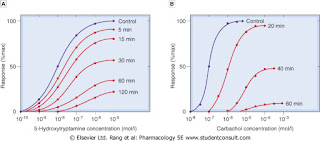Navigating the Investigational New Drug Application (IND) Process: A Comprehensive Guide
What is IND Application?
An Investigational New Drug (IND) is a drug or biological drug that has not been approved for general use by the FDA. It is used in a clinical trial to investigate its safety and efficacy. It describes the purpose and overall clinical development plan for the drug or biological product
The term also includes biological products that are used in vitro for diagnostic purposes. An IND application is a request for authorization from the FDA to administer an investigational drug or biological product to humans.

Contents of IND application:
An IND application form (FDA Form 1571) and statement of investigator (FDA Form 1572), specify following Contents:
CMC information:
Chemistry, manufacturing, and quality control for the active moiety of the drug — for a biological product, this information includes the physicochemical characteristics, such as structure (if known), identity, purity, potency, and stability; a description of drug composition, formulation (e.g., liquid, powder), dosing regimen, and route of administration in the proposed clinical trial; and the manufacturing and quality control systems that establish the quality of the drug product
Pharmacological and toxicological data:
Demonstrate that the proposed investigational product has a pharmacologic effect, without associated toxicity, at the dosing and dosing regimen proposed for human study (included with these data would be a description of the mechanisms of action and information describing the drug absorption, distribution, metabolism, and excretion)
Study protocol:
Protocol which states the clinical trial objectives, design, eligibility criteria, monitored parameters, laboratory testing and procedures, and statistical analysis plan, if applicable, as well as information describing previous human experience with the investigational product or similar products (protocols for phase I studies focus on preliminary safety evaluation in healthy participants, while phase II and III studies are more detailed, controlled studies in a target study population)
Investigator’s brochure:
Describes other investigators the possible adverse reactions anticipated, based on previous human experience with the investigational product or with a similar product (a sponsor–investigator is exempt from submitting an investigator’s brochure as long as the clinical trials conducted are only at a study site for which the sponsor is also the investigator, but if the sponsor–investigator decides to conduct a multicenter trial then an investigator’s brochure is required when more than one principal investigator is involved in conducting the trial)
After 30-day IND review period, the regulatory agency makes a decision to permit the sponsor to begin a clinical trial according to the proposed protocol or to delay the start of a clinical trial pending corrected deficiencies or provision of additional information.







Best Temperature Mapping Service Provider company in India. temperature mapping validation, temperature mapping guidelines.quality assured quick service record
ReplyDeleteNABL calibration laboratory
Veda Fertility is Best IVF Centre in Gurgaon and Fertility Treatment. Book Doctor Video Consultation with your favourite Fertility Doctor Online Gurgaon.
ReplyDeleteart fertility clinic gurgaon